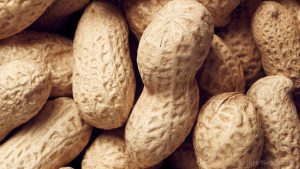CBD helps relieve anxiety without the high


A cannabis extract is drawing increasing attention for providing some of the benefits of marijuana without the high that accompanies the drug. A National Public Radio report states that cannabidiol (CBD) could offer a safe and effective way to reduce anxiety, drug addiction, and other disorders.
While it is derived from the cannabis plant, CBD does not contain the psychoactive ingredient tetrahydrocannabinol (THC). It will not alter the user’s mind.
In states that have legalized marijuana for recreational or medicinal uses, people are trying out various CBD products for stress relief and relaxation. Products include capsules and liquid oil. The CBD industry has grown alongside its parent market. Americans bought $100 million worth of CBD products in 2016, and that amount has doubled by 2018.
Yet many people are unclear or mistaken about the effects of CBD and how it achieves those effects. Researchers are working to determine the extract’s exact properties. (Research: CBD oil: A miracle oil that relieves anxiety without causing a high.)
CBD could treat alcohol abuse, drug addiction, and PTSD symptoms
New York University (NYU) researcher Dr. Esther Blessing states that CBD shows potential as a means of treating addiction and anxiety. She adds that full clinical trials will be needed to determine its effects.
Animal research and minor, short-term human studies showed that CBD can reduce inflammation and anxiety. Dr. Blessing cites a 2011 study where a small group talked to a sizable audience. Some of the participants suffered from social anxiety disorder. In that study, a number of participants were given CBD, while others got a placebo. The anxiety levels of all participants were measured and compared. The findings showed that participants who took CBD experienced much less anxiety.
Dr. Blessing will soon start her own clinical test. She will investigate the effect of CBD on people who suffer from both post-traumatic stress disorder and alcohol abuse. Her study will involve 50 participants, some of whom would be given 400 milligrams of cannabidiol every day. The trial will use pharmaceutical-grade CBD.
A separate clinical trial by Mount Sinai School of Medicine researcher Yasmin Hurd focuses on efficacy and side effects of CBD. This trial will involve opioid abusers and see if cannabidiol can reduce their addiction.
“Drugs can be non-psychoactive and still have an effect on the brain,” Blessing remarks about the irony of using a marijuana extract to treat opioid addiction. “CBD does have an effect on the brain, but it seems to affect the brain in possibly medicinal ways.”
If you are interested in cannabidiol, you can learn more about it – and the hemp plant that produces CBD – at HempScience.
Sources include:
NPR.org
ClinicalTrials.gov






